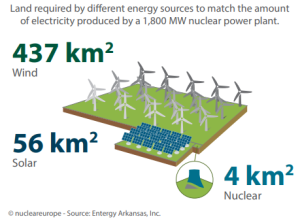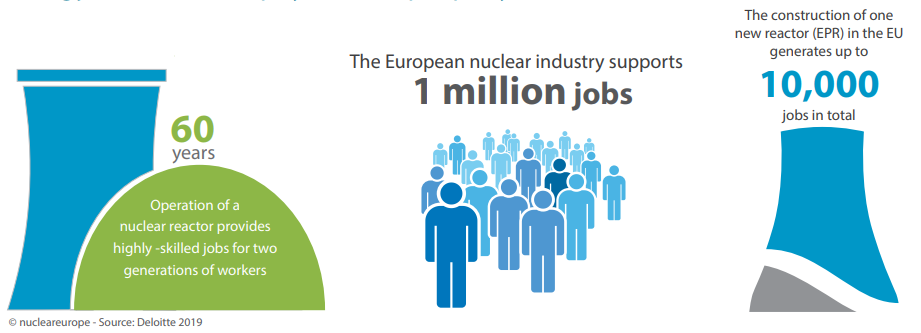Nuclear energy is one of the most efficient and sustainable energy solutions currently available.The Romanian Atomic Forum (Romatom), the Nuclear Industry Association in Romania, emphasizes the importance of nuclear energy for the energy future of Romania.
Fission, the basis of obtaining nuclear energy
This process consists of absorbing a neutron by a large atomic nucleus such as uranium, which will become unstable.It will break in several fragments, with high thermal energy release, which strongly accelerates the resulting fragments, which reach very high speeds.Due to their high speed, these fragments, as a result of the file, can enter, in turn in other atoms, where they cause other fissions.
The historical evolution of nuclear energy:
-
- 1942: Creating the first nuclear reactor.
- 1951: The start of the "Atoms for Peace" program of President Eisenhower, marking the beginning of the use of nuclear technology, including the production of electricity.
- Chemistry has played and plays a crucial role in the production of radioactive materials used as fuels in reactors, control devices, reprocessing fuels, waste management and environmental protection.
Global statistics (May 2024)
 Currently, nuclear energy is an essential component of the global energy mix, contributing significantly to the reduction of carbon emissions.
Currently, nuclear energy is an essential component of the global energy mix, contributing significantly to the reduction of carbon emissions.
- 440 operational reactors in operation in 32 countries.
- 55 reactors under construction.
- 109 planned reactors.
- Nuclear energy provides 50% of the energy with low carbon emissions in the European Union and over 30% of all the energy produced.
Top 4 countries with most reactors in operation (network connected):
- United States: 94 reactors
- China: 56 reactors
- France: 56 reactors
- Russia: 36 reactors
Nuclear energy and zero net goal
Nuclear energy plays an essential role in achieving the global net zero goal.By constantly generating clean and reliable energy, nuclear energy contributes to reducing fossil fuel dependence and ensuring a stable energy source.
In terms of nuclear energy, it is cleanse (produces very low carbon emissions), SAFE (modern technology of reactors and very strict safety measures), predictable (provides a stable and continuous source of energy, regardless of weather or season conditions), reliability (nuclear power plants work non-stop) and ensures security and energy independence (nuclear energy reduces dependence on energy imports).
Recent, Nuclear energy has been included in European Union Taxonomy for sustainable financing.It recognizes the essential role of nuclear energy in the transition to a low carbon economy and opens the way for investments in sustainable nuclear projects.
Regarding the impact in society, nuclear energy ensures energy strength, creates jobs, from the operation of the boiler and on the entire supply and research chain.By default, it also leads to economic development, nuclear projects attracting major investments.

